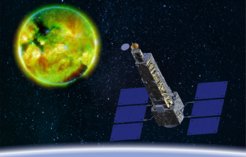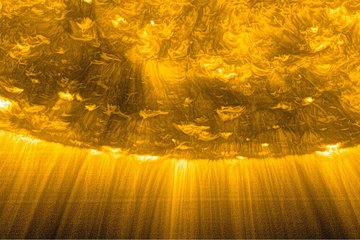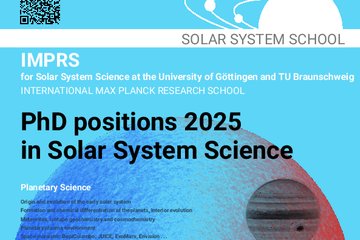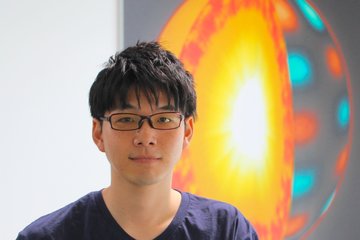Starting signal for Solar-C
The Japanese solar mission is scheduled to launch into space in the mid-2020s. MPS has contributed decisively to the design of the mission.
The Japanese space agency JAXA has officially approved the space mission Solar-C. The research satellite is scheduled to lift off in the mid-2020s and study the Sun with a high-resolution spectrometer, which analyzes extremely energetic ultraviolet light. In this way, Solar-C will provide the most accurate measurement data from the hot, outer layers of the Sun to date. The Max Planck Institute for Solar System Research (MPS) in Germany has been involved in the planning and development of the mission from the very beginning and has played an important role in reaching the current milestone. The institute’s goal is to build crucial subsystems for the spectrometer in the coming years and to test and calibrate the finished instrument on site in Göttingen.

Scientists are still puzzled by the Sun’s hot outer layers. How does our star succeed in heating the corona, its outer atmosphere, to unbelievable temperatures of one million degrees? And how do so-called flares, bursts of radiation that release huge amounts of energy, originate there? Researchers hope to find answers to these questions in the ultraviolet radiation that our star emits into space. It is primarily generated in these outer layers - and is not accessible to ground-based instruments since it is absorbed in the Earth's atmosphere.
Like its Japanese predecessor missions Yohkoh (Solar-A) and Hinode (Solar-B), Solar-C is designed to intercept and study the ultraviolet radiation from the Sun in space. The envisioned spectrometer, which JAXA will build in the next few years in collaboration with European and American partners, will achieve a higher spatial and temporal resolution than any previous instrument. Over the past ten years, MPS has made a decisive contributions to the planning of the mission and will continue to be an important partner in the mission’s next phase. The researchers from Göttingen are drawing on expertise gained through their participation in similar instruments such as the spectrometer SPICE onboard ESA’s Solar Orbiter.












